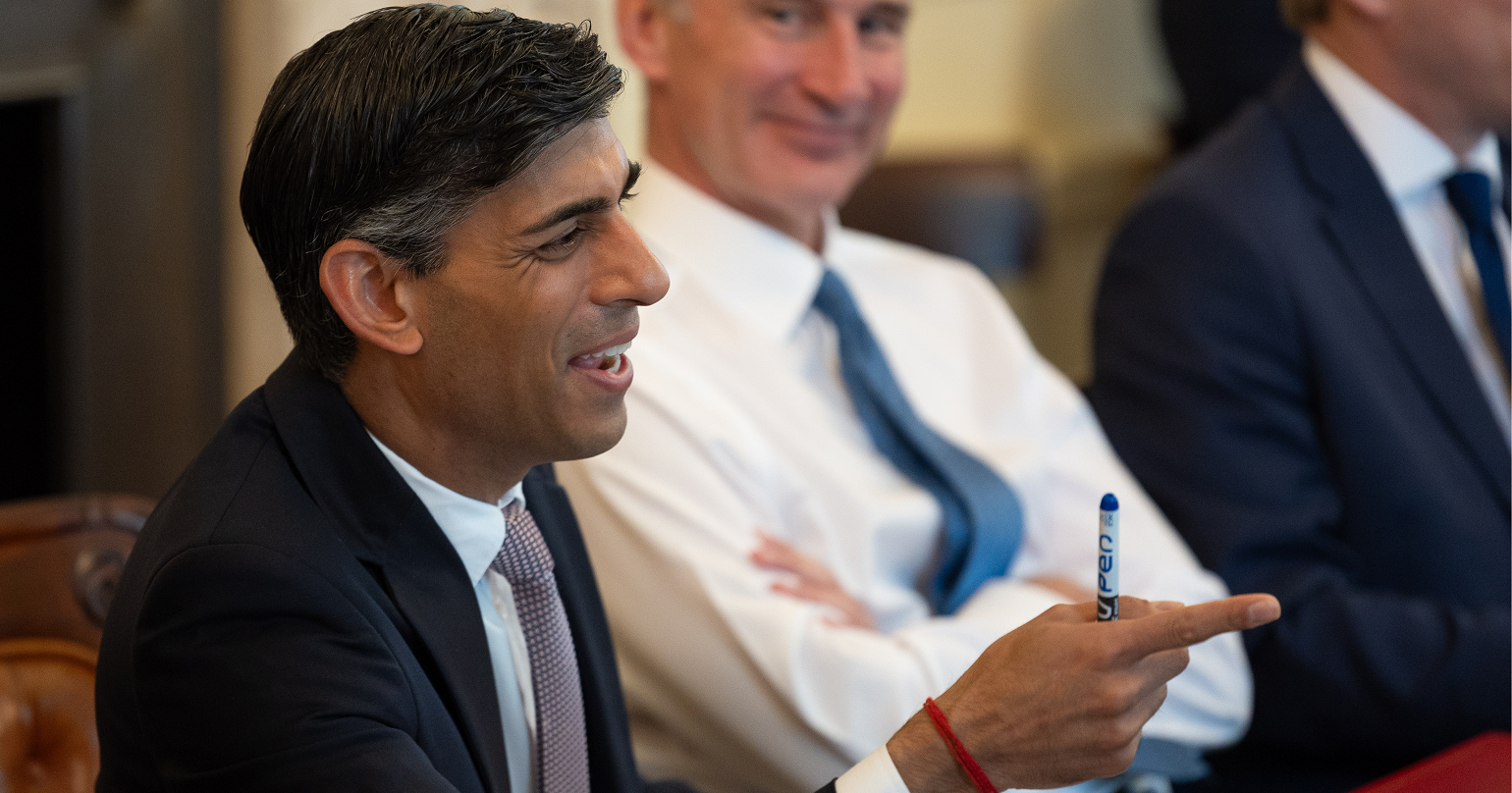If you ever needed proof that the FPTP system is abused then this is it.
Redfield and Wilton’s poll – published today – suggests that if Jeremy Corbyn were to run as an independent, 15% of voters would back him. According to the survey, he would peel enough voters away from incumbent mayor Sadiq Khan so that the Tory candidate Susan Hall would emerge victorious with 30% of the vote to Khan’s 25%.
I hate FPTP, but this is a big if.
That would be absolutely hilarious if that happened. Also depressing. So very depressing to have another Tory in power hand delivered by Corbyn.
At that point, you’d have to start asking how much the Tories are paying Corbyn. I can just about accept that him gifting the Tories the 2019 election was done out of incompetence and stupidity, but if he gifted them the London mayoralty too then it starts to look deliberate.
I fully expect that if Corbyn stood, his campaign would be well funded and we’d discover afterwards that he benefited from Tory donors wanting to create a path for Susan Hall.
What nonsense.
I think there’s more chance SIR Keir is on the payroll of the Establishment.
I guess you’re one of those that keeps on saying that Corbyn is a racist and anti-semite.
The if is JC running?
Yes. I think it’s unlikely.
There’s also the fact that some people answer differently in hypothetical polls to what they do when they’re in the polling station.
By what measure are FPTP countries “Democratic”?
The power to change the ruling class doesn’t belong to the people.
They are not FPTP are easy for those with cash to manipulate. This is not democratic equality in any way shape or form.
At this point does it really matter whether the next government (or mayor) is Labour or Tory?
I can’t tell them apart on any major policy. They have “stylistic” differences but there’s now nothing of substance that differs.
What’s left is politics of personality. And more austerity.
They’re essentially going to manage the economy the same way, yes
They’ll be quite different on social issues, civil rights and foreign policy, mostly because they won’t be burdened by the political necessity of defending fifteen years of mess.
Risky Sunak can’t afford to go back too hard on those errors without angering his own party, and no party leader in living memory has been more scared of their own MPs and party membership.
It’s a shame that Labour can’t articulate what the differences in things like civil rights and foreign policy actually are.
Can you actually tell me a single major policy where Labour fundamentally disagrees with the Tories? (Not vague “We will just do things better” promises. Though I’ve no doubt Starmer and co will run a Tory economic policy better than the Tories.
No, labour have been stung too many times by specific policies announced too far in advance of the election being distorted and weaponised against them, they’re being very coy. Starmer seems to be very much focused on not messing up anything before the next election.
I don’t infer from that a belief that when their policies emerge they will be the same as Tory policies, since there’s no evidence of that. Little evidence of anything at this stage.
Edit. Which swtor server do you play on?
Can you actually tell me a single major policy where Labour fundamentally disagrees with the Tories?
-
Great British Energy. A fully state-owned energy supplier that will invest in renewable energy. Like, really, just try to imagine those words coming out of a Tory’s mouth and said Tory not immediately imploding.
-
Reform of the Gender Recognition Act. It’s not a huge reform, but it’s an improvement on the existing process and is clearly a fundamental disagreement with the Tories, given that Rishi Sunak is still considering banning minors from socially transitioning (despite being told it would be illegal for the government to do this.)
-
Workers rights. While the latest version of their policy isn’t as good as the original, I believe most of the proposals are still in place, including: full employment rights from day 1 (currently from 2 years); sector-wide collective bargaining and minimum wages; unions have the right to recruit in all workplaces. The main policy they’ve rowed back on is creating a single class of worker, leaving only the genuinely self-employed as self-employed (ie, actual owners of small businesses).
These are just the first three that come to mind. There’s a handful of other things, like renters’ rights and housebuilding/planning reform where both Labour and the Tories say they’re going to do something about it, but Labour seem more likely to actually do it. Labour were also talking about reforming the House of Lords at one point, and while they’ve been quiet about it lately, what they haven’t done is officially announce they’re not doing it. The Labour Party also supports electoral reform, they just haven’t succeeded in getting the leadership to commit to it (this could genuinely be a strategy on Starmer’s part to avoid having it weaponised against him.)
Another clear fundamental difference between Labour and the Tories is Labour haven’t given any indication that they want to leave the European Court of Human Rights. So, you know, there’s that.
I’m not going to say that Labour and Keir Starmer haven’t been massively disappointing lately, because they really, really have. The shift to the right has pissed me off and a part of me wants to vote for the Lib Dems or Greens just out of spite (whether I do this definitely depends on just how safe my currently Conservative seat looks at general election time. A 15k majority is certainly not as safe as it was 4 years ago.) But Labour do still have a handful of really good policies that are clearly superior to anything the Tories have to offer.
They definitely have not been very good at publicising these policies (the document about their workers rights policy has been on their website for like 2 years now, and it’s gotten next to no media attention), and it’s hard to say whether it’s the result of Labour deliberately making themselves a small target, or the right wing media just refusing to talk about any of the things Labour wants to do that the majority of people would actually like.
None of the parties have released their manifestos yet, and I’m not sure we’ll see them until a general election is announced. I don’t think we can conclusively say what Labour’s policies will look like compared to the Tories until the manifestos are out there.
I think all three of them are not “great reforms”:
- Great British Energy is a mechanism to attract PRIVATE investment . The actual sums being proposed are to subsidise private enterprise. It’s not a state-owned energy company. Labour spin it like that to appeal to people who want to see utilities brought back into public ownership. The devil is in the detail.
- Labour MIGHT bring in gender reform but Starmer’s drift towards anti-trans positions doesn’t look promising.
- Labour have been very clear that they WON’T repeal the existing anti-trade union legislation. This has irked the TUC and Labour are not supporting the TUC taking legal action on an international level.
We need radical policies that address thr extreme poverty and collapse of our social services in the UK. Things must be made better for the poorest (eg. increasing social security, rent caps, free school meals for all, greatly increase the minimum wage) and start taxing the excessively wealthy and corporations.
Labour won’t do this because they are now utterly a tool of the Establishment to maintain the power and wealth of the excessively rich.
-
If from someone’s vantage point they can’t tell the difference between Labour and the Tories, I’d question their vantage point. If one stands far enough off to the left, then boring centrist moderates and radical right-wing extremists may both be quite far away from where you’re standing and perhaps end up looking almost close to one another - that’s an optical illusion caused by perspective though, rather than a statement of reality. (For completeness: I’m neither a Labour nor Tory voter but I can still pretty clearly tell the difference!)
Also this is about the mayoral election, and Sadiq Khan has charted a course in office that’s quite distinct from Labour nationally - for my money, he’s by far the best senior Labour politician active at the moment.
Your analogy is only an analogy. Certainly, on issues I consider important Tories and Labour hold the same positions at the moment. For instance, many people are in utter poverty in this country. We have friends who both work and have to make decisions about whether they pay their extortionate rent or feed their kids. No one in the UK should have to put up with that.
And what do we hear from Labour? Nothing about rent comtrols, nothing about free school meals, nothing about raising the minimum wage to a genuinely living wage, nothing about taxing the excessively wealthy (or anything about redistributing wealth in fact). All we hear from Labour is that they will - like the Tories - “Grow the economy”. I’m sure you heard Rachel Reeves caught out on LBC recently by having her former words about the need to tax the wealthy.
Labour - with SIR Keir - are part of the Establishment and exist to make sure that the excessively wealthy and those with inherited wealth maintain their power and economic position.
That’s not an “optical illusion”, that’s looking at things very clearly in broad daylight. Perhaps your “moderate” postion where you can accept a country where half a million children live in destitution/extreme poverty is the vantage point that needs to be examined.
Labour - with SIR Keir - are part of the Establishment
Fully agree that Labour under Starmer have shifted to become a moderate establishment party. That is good, because the Tories post-2016 - and especially in the Johnson/Truss/Sunak years - have become an aggressive radical anti-establishment party. At various points in the last few years, the Tories have gone to war with most of the pillars of the establishment: the legal profession, the BBC, the Bank of England, business, the civil service, parliamentary democracy, and of course most prominently our long-standing relationship with our closest neighbours, friends and trading partners.
I will be very glad to have a moderate establishment PM in office to clean up the mess that the last several years of radical anti-establishment PMs have left behind.
Ho ho ho! Next you’ll be telling me Trump is the anti-Establishment candidate in the US.
I use the traditional definition of Establishmemt: all the structures and processes that are used to maintain the political power of inherited wealth in this country. John Gibbs, the cultural writer, describes it as the “Norman Continuity Empire” where 1200 aristocratic familes close to William the Conqueror. The aims of the Tories is to best represent that Establishment and the aims of Labour is to help prevent the redistribution of that wealth.
I can tell that you like to see yourself as a moderate but knowing that half-a-million children live in extreme poverty (a Westminster calculation) and NOT sorting it out is a crime against those children. Starmer, for example, says that he will maintain the 2-child cap on child benefit at the same time as promising the excessively wealthy that he wont tax them. Both parties and all leaders (with possible exception of Greens) agree on that. And it’s not a moderate position.
Edited: added the word NOT
Ho ho ho! Next you’ll be telling me Trump is the anti-Establishment candidate in the US.
Yes. Trump is the archetypal anti-establishment candidate. He wants to burn down the existing order and recreate it in his own image. I think you’re conflating ‘anti-establishment’ and ‘left-wing’. Radicals exist on the left and the right - and in their (establishment) targets and their methods, they often end up having rather a lot in common.
It’s not that uncommon to come across people like Claire Fox (whose career took her from the Revolutionary Communist Party to the Brexit Party) or George Galloway (who went from the anti-Blair left of the Labour Party to endorsing Nigel Farage and Brexit). There was a recent Economist article about the number of recent books by ostensibly right-wing US Republicans that peddle anti-capitalist narratives more commonly found on the left; you see this too in the tendency of US Republicans in recent years to pick fights with large corporations (such as Ron DeSantis’s ‘war on Disney’) and Boris Johnson’s famous ‘fuck business’ declaration during the Brexit negotiations.
When a politician starts to define themself as against ‘the establishment’ (instead of as for something), it’s too easy to find themselves sharing a bed with a host of other characters you might have assumed they would find unsavoury.
We’ll just have to disagree about this. What you misread (which is exactly what Trump and the right-wing Tories over here want you to do) is that they want to tear down the structures of power and wealth. They really don’t. They might want to gain advantage within the Establishment but none of them want to see it brought down. It’s purely rhetoric. Look at Truss as an example. She bent the knee. They all bend the knee. Starmer has literally kneeled down and been knighted.
Sorry but I think you’re dramatically misreading the politics of our country if you think people like Johnson, Truss, Braverman etc are fans of the status quo. They are not. They pretty evidently loathe Britain as it is and their every action in government has been aimed at tearing down the status quo and creating some radical right-wing conservative dystopia in it’s place. Truss was the single most radical, anti-establishment prime minister of my lifetime, even more so than Thatcher, and we’re profoundly fortunate that she was removed from office before she could do more harm.
The post-2016 Tories have vandalised so much of the fabric of modern establishment Britain - the NHS, the BBC, the courts, the professions, the universities, the civil service, the police, our rights and civil liberties, our reputation in the world, our place in the European Union. It beggars belief that anyone could think that these people are supporters of that very same establishment that they have been so busy tearing down.
I think this piece by John Rentoul is worth considering: https://www.independent.co.uk/voices/labour-conservative-party-starmer-sunak-election-b2275775.html






